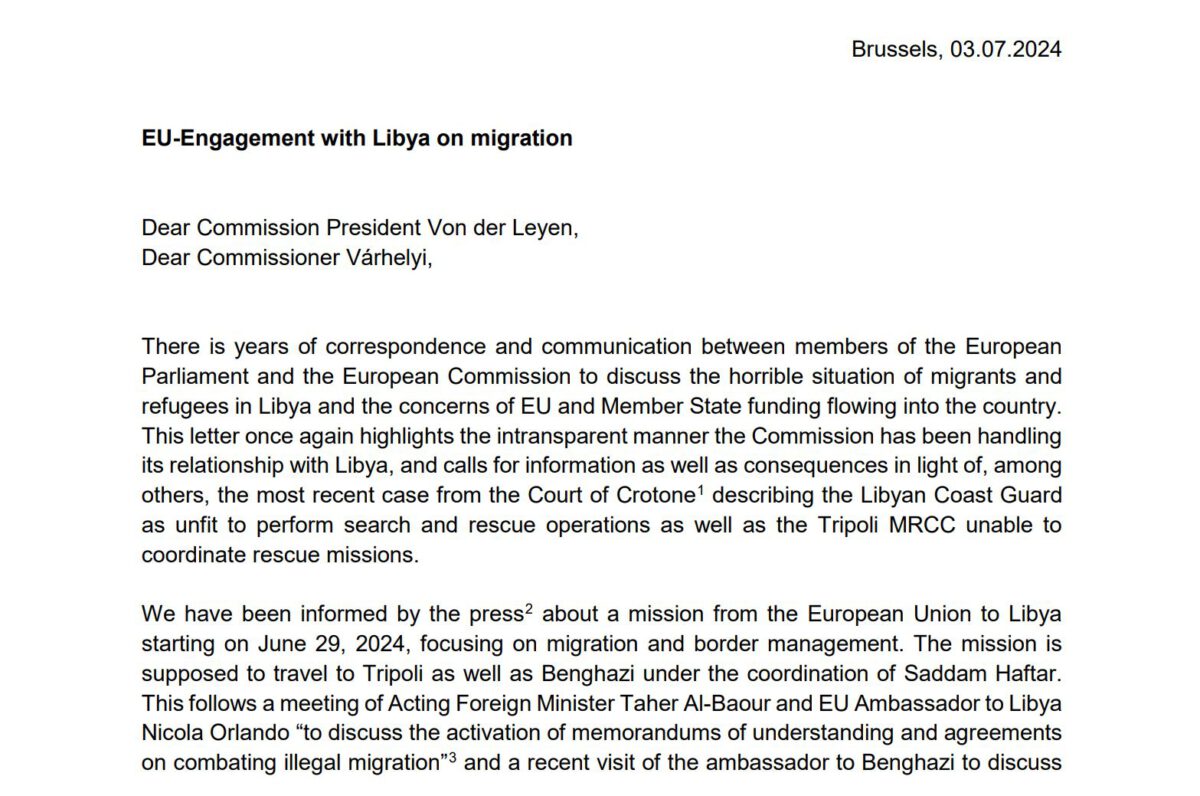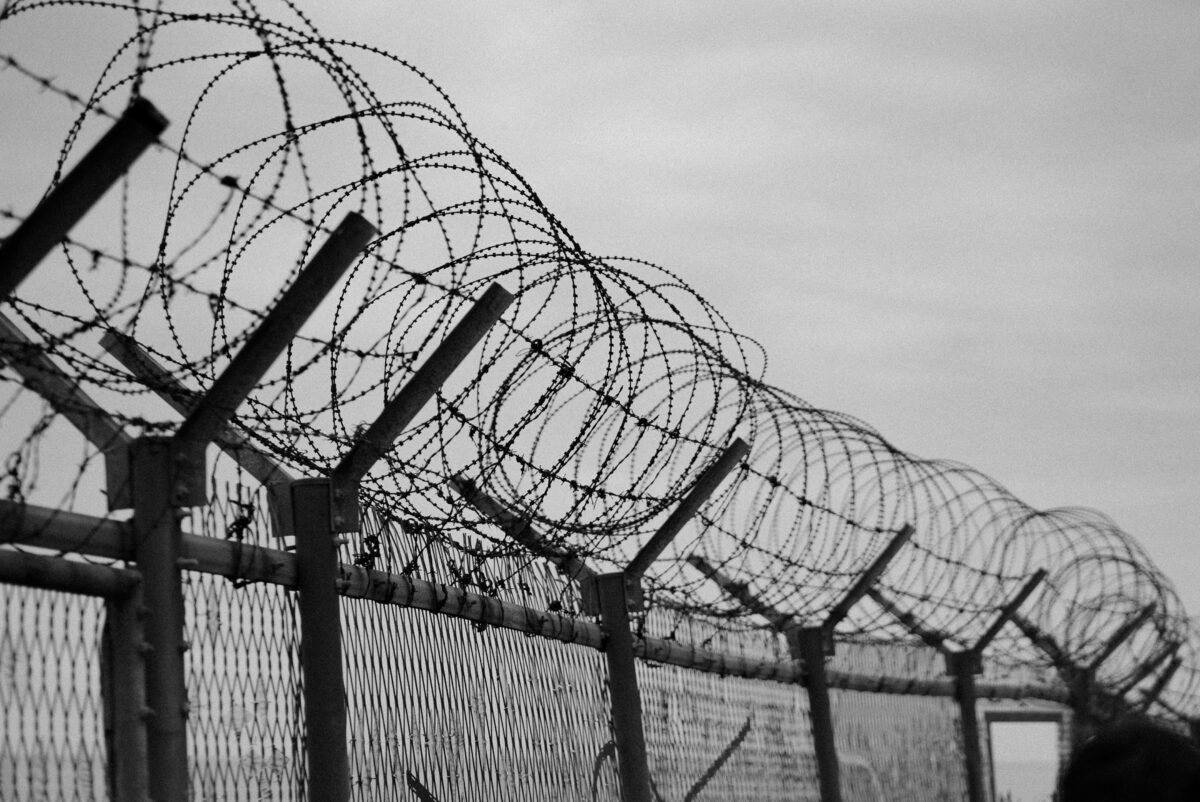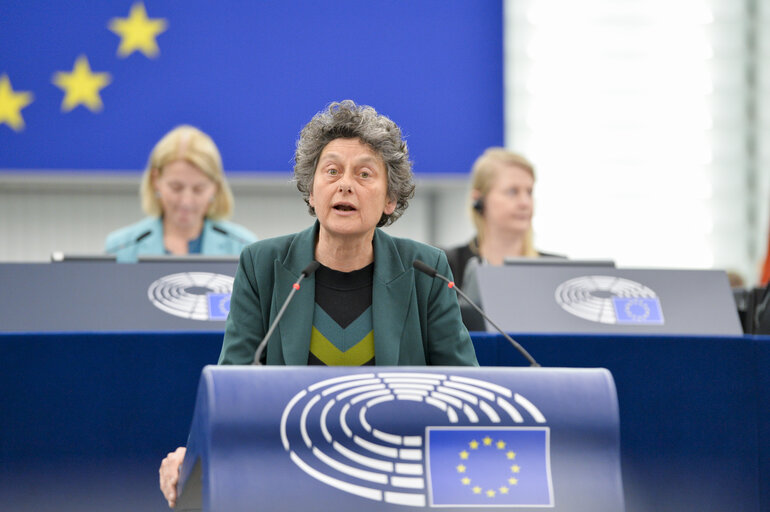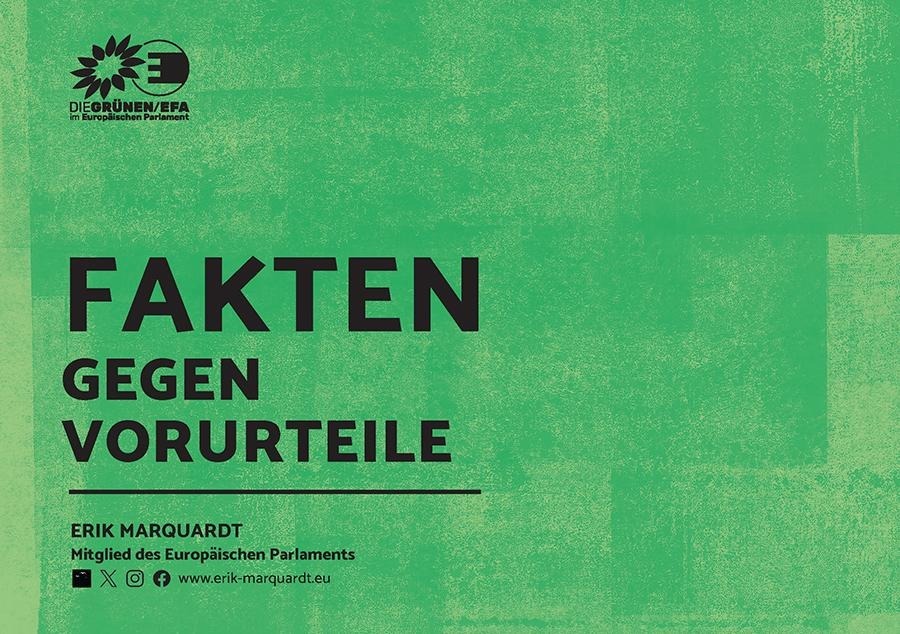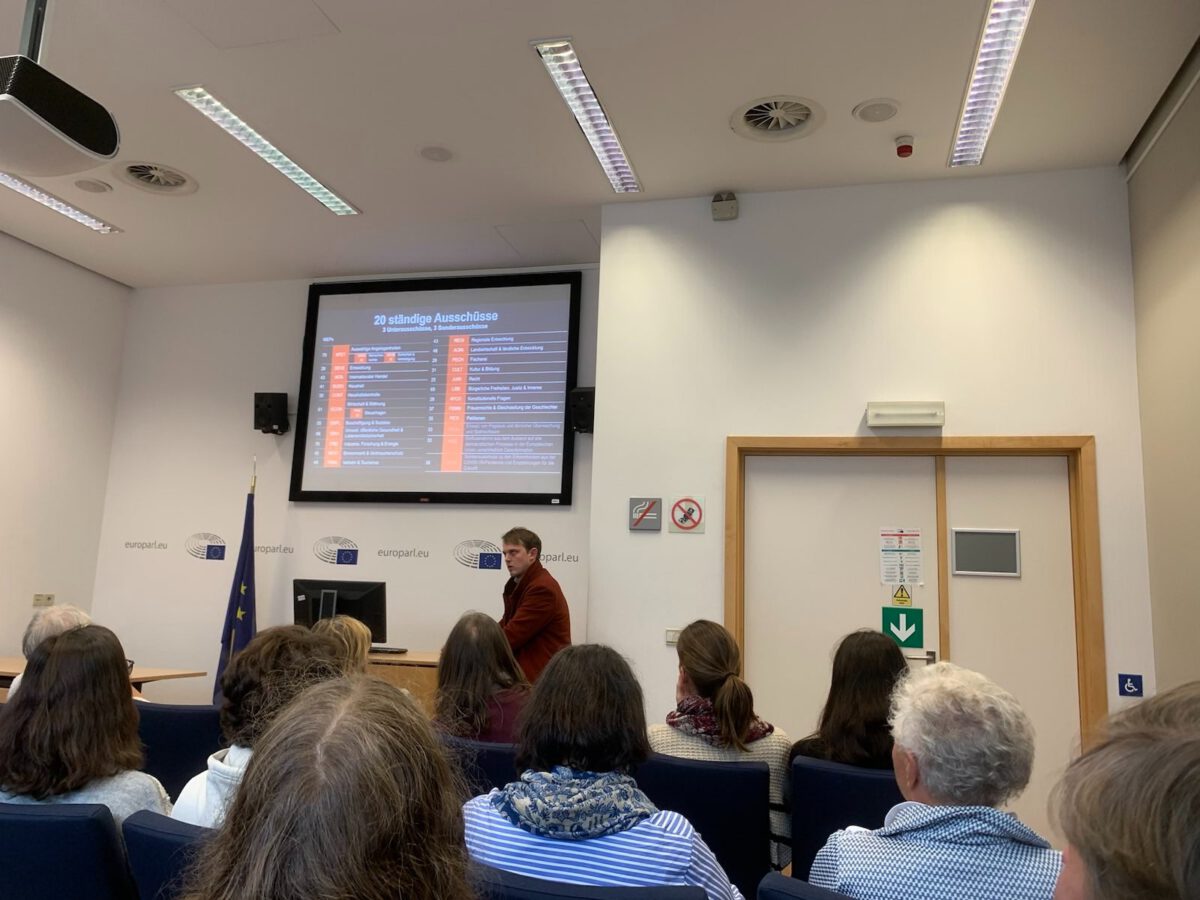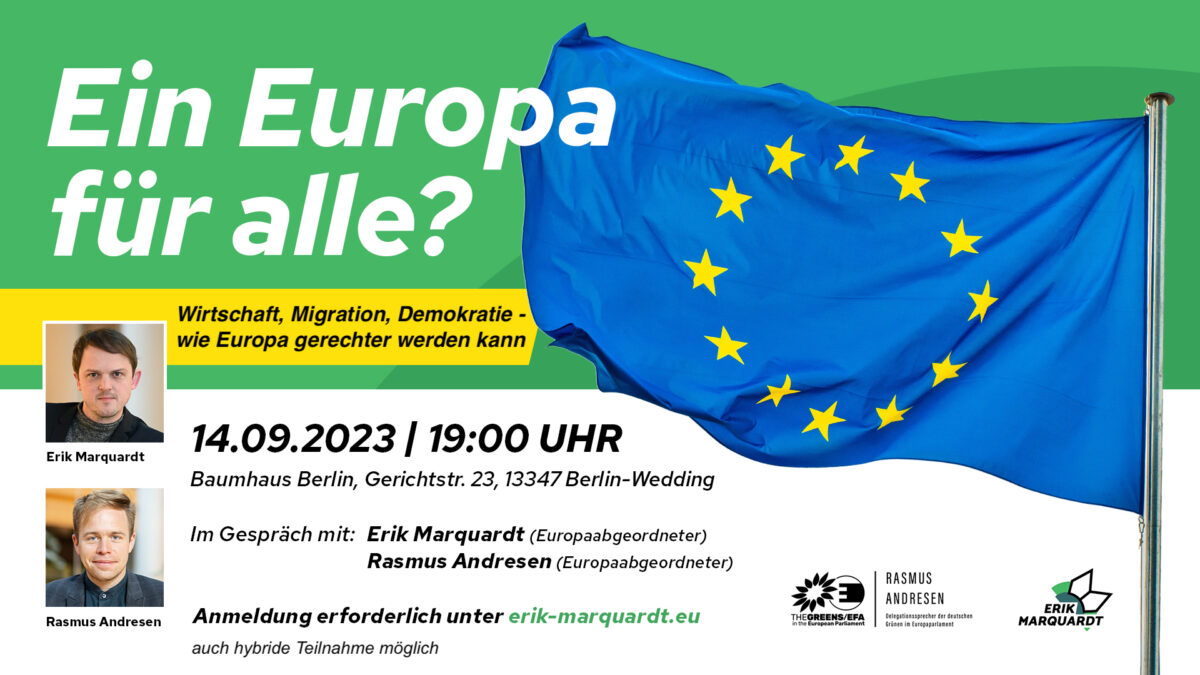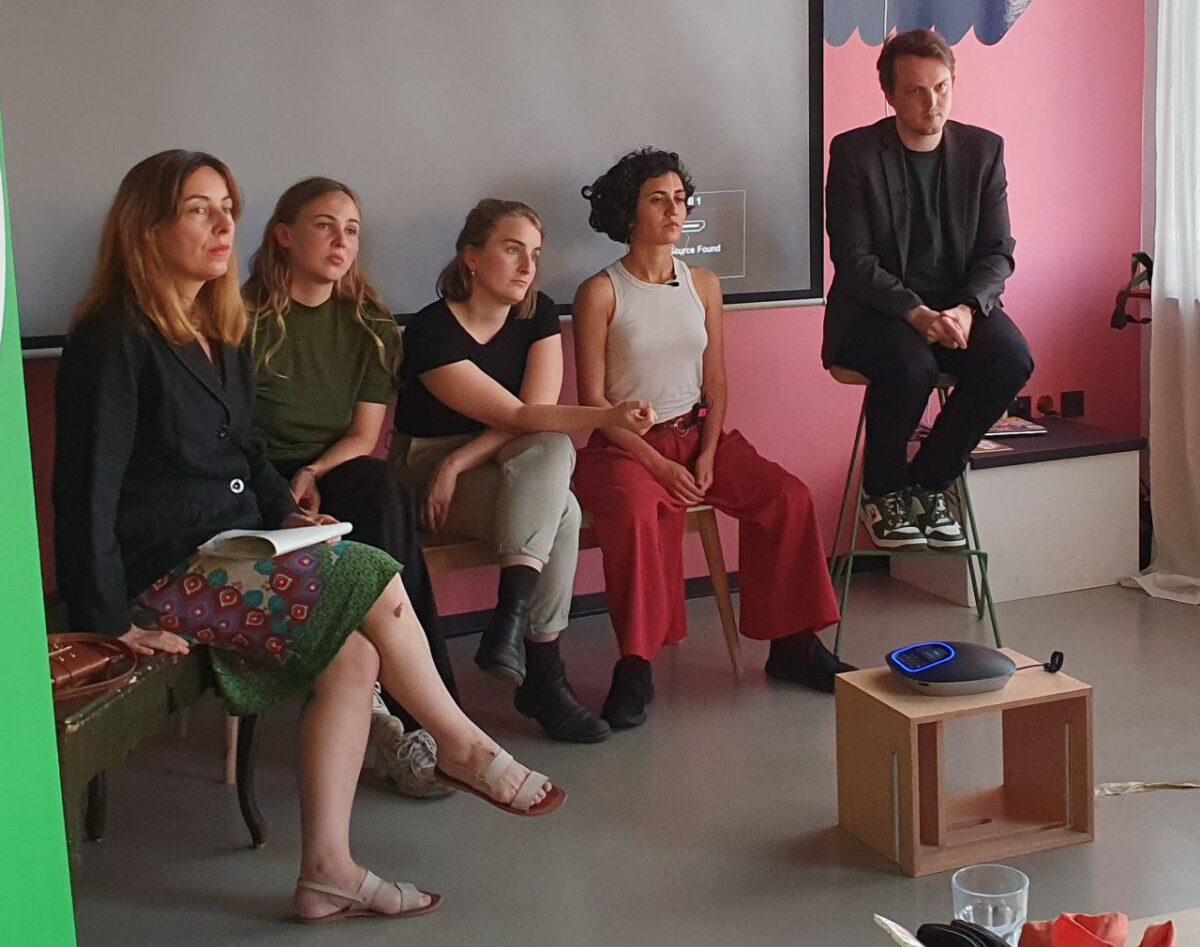I receive many inquiries about flight and migration. Some are based on genuine interest and I am very happy to answer them. Unfortunately, however, there is also a loud minority that repeatedly tries to impose its racist, right-wing populist or prejudiced world view on others and to disinform them. This disinformation has been very successful in recent years, with the result that migration is no longer discussed in an objective manner in large parts of society. That is why I have written down and answered common questions and prejudices here. I would like us to be proud of being able to help people in need and to make decisions in accordance with the rule of law. For this to succeed, we have a shared responsibility to oppose bogus solutions and populism. In addition to the facts against prejudices, it is important to constantly question proposals and assertions. It is often enough to ask questions and ask people to find out more for themselves.
Sea rescue lures people to the Mediterranean!
Studies show, that the number of crossings will not fall if sea rescue is prevented. But without sea rescue, more people drown. The fact that it represents a so-called pull factor is a lie. Currently, over 90% of people arrive without civilian sea rescue. This proves that civil sea rescue is not a prerequisite for fleeing to Europe. Sea rescue only prevents more people from dying. Sea rescue is not only an obligation under international law, but also an essential part of what defines us: when people are in need, we have to help, regardless of why someone is in distress. We cannot erect European borders that are more dangerous than civil wars just so that people have to stay in war instead of finding protection. If we really want to prevent deaths in the Mediterranean, we need safe, legal routes for refugees – for example via the UNHCR resettlement program, in addition to sea rescue.
It's mainly young men who come here who don't need asylum.
Wrong. Worldwide, there are as many women as men on the run. If refugees from Ukraine, Syria, Afghanistan and all other countries are added together, a total of 551,000 women and girls and 451,000 men and boys fled to Germany between the beginning of 2022 and September 2023. There are various reasons why more men than women flee to Europe from some regions: Many families can only afford the flight for one person. Women are at risk of being abducted or raped when they flee. This is why family fathers or young men often flee alone and then try to legally reunite with their wives and children or family. As family reunification is severely restricted and sometimes takes years, more women and children have to flee on life-threatening escape routes. In addition, men sometimes have special reasons for fleeing, such as compulsory military service for a dictator. This is a major reason for flight in countries such as Eritrea, for example.
They are not real refugees, they are just economic migrants.
Most people seeking protection in Germany currently come from War zones, Ukraine, Syria and Afghanistan. They are not economic refugees. Only around 12% of asylum applications in Germany come from African countries. Even if you exclude the refugees from Ukraine, almost three quarters are granted protection status after a substantive examination of the asylum application. The adjusted protection rate was 72 % higher than ever before. Poverty, famine or destroyed livelihoods are also reasons for many people to flee, even if they are not recognized as grounds for asylum. Here, we should advocate for legal and safe escape routes, for example via UNHCR resettlement, but also better opportunities for safe migration into the labor market. After all, we are short of 400,000 additional workers and skilled workers in Germany every year. Furthermore, not everyone who comes to Europe has the right to asylum - but everyone has the right to a constitutional procedure.
Germany is already doing so much anyway. Why shouldn't the other countries do something?
In the world there are over 108.4 million people on the run. Most do not flee to Europe: around 85% find protection in countries of the global south. The countries that have taken in the most people overall are Turkey, Iran and Colombia. In per capita terms, other countries are at the top. In Lebanon, one in seven people has fled, in Jordan it is one in 16.
In the EU, most asylum applications are made in Germany – however, Germany is also the most populous country in the EU. Based on the number of inhabitants Germany in 10th place out of 27 EU countries in 2022. Cyprus, Austria and Luxembourg received the most applications in terms of population. The impression that Germany is alone in Europe in taking in refugees is deceptive. Nevertheless, a fairer distribution of refugees in Europe is needed, as Germany takes in more people than would be necessary in a fair distribution key. Many countries in Europe also treat refugees so badly that they cannot stay there. This not only creates suffering and chaos, but also an unfair challenge for some member states.
Why are they fleeing the war, can't they just serve their country and fight?
Would you pick up a gun for a dictator? Would you shoot or bomb innocent people? Or would you try to escape? We should be grateful to every person who is not fighting in civil wars, for dictators or murdering militias. And we should give these people protection. The European Court of Justice has confirmed in a ruling that the threat of military service in such situations is a reason to flee.
For example, every Russian who flees from military service is one less person who can commit war crimes in Ukraine.
If they are genuine refugees, why do they pay smugglers and come illegally?
To board a plane to Europe, you need a visa for the Schengen area. In many countries around the world, such as Syria or Afghanistan, it is not possible to obtain a visa. The vast majority of people can therefore only flee to Europe via irregular, dangerous routes. They often have to pay several thousand euros for this. There are no safe escape routes to Europe for most people. It is also not possible to apply for asylum at an embassy. Asylum can only be applied for if you have already arrived in Europe. Although the number of refugees worldwide has reached a new high, the number of legal escape routes – for example via resettlement programs – has reached a new low.
Although flying to Europe would be much cheaper and safer than fleeing on a rubber dinghy, this is out of reach for many. Legal routes to Europe are the most effective means of combating people smugglers. Nobody puts themselves in the hands of criminals if there is a safer and cheaper option.
There are far too many rejected asylum seekers living in Germany who are not deported!
Some politicians often claim that too few people are deported in Germany and that the country is therefore overburdened. This is not true. On June 30, 2023, there were 279,098 people in Germany who were required to leave the country. Around half of these are rejected asylum seekers – the others are often people who have simply overstayed their tourist or student visa and do not want to apply for asylum. Of those required to leave the country, 81 percent had a tolerated stay permit. The bottom line is that 54,330 people – are directly required to leave the country, a large proportion of whom are not asylum seekers. Measured against the number of people seeking protection in Germany, this is a very small group. Nevertheless, it is often pretended that a "repatriation deficit" is of great relevance to the number of refugees in Germany. The demand for faster deportations often leads to people being deported who have integrated quickly and successfully. This also applies here: The competition for the toughest rhetoric on repatriations will only have the right-wing populists as winners.
Aren't the many refugees too expensive? How are we supposed to afford it
It is often claimed that people flee to Germany primarily because the social benefits are so high. This is incorrect and often serves to create prejudices against refugees. Scientists agree that many factors are relevant for the destination country. The most important factors are whether people have relatives or friends in the country – i.e. a network that they can access.
It is also not true that asylum seekers receive as much or even more state support than Germans. They receive money in accordance with the Asylum Seekers' Benefits Act and this is significantly less than citizens' income. Extensive cutbacks + limited medical care are an additional burden.
For 2024, the federal government plans to spend a total of 21.3 billion euros for refugees and asylum. However, entire 7.5 billion. is earmarked for combating the causes of flight. For reception, registration and accommodation in asylum procedures, for example, only 1.1 billion planned. The federal government also transfers money to local authorities for childcare and social housingwhich appears in this item, but which benefits many people, not just refugees. A large part of this sum therefore benefits us all. Studies also show that migrants pay more taxes over time than they receive in social benefits.
Refugees are taking our jobs or don't want to work
The fact is that there is a shortage of workers and skilled workers in almost all sectors in Germany, particularly in the skilled trades and care. Fewer children are being born every year, but the job market is not getting any smaller. Incentives instead of deterrents for migrants would counteract the problem. 400,000 additional workers per year are currently needed or the retirement age will have to be raised further and further and our welfare state and economy will begin to falter. Successful labor market integration is the key to our immigration country. But of course it would be better if we improved legal pathways for labor market integration. Most refugees will stay with us for a long time if they are granted protection status. So far, it takes too long for people to enter the labor market, especially women. Many refugees have problems with the recognition of their qualifications, have to learn the language and complete training or studies. Nevertheless 62 percent of refugees seven years after arrival employed. That is only around 10% less than Germans without a history of flight. To accelerate this even further, it would be important to abolish work bans for refugees. In addition, language and integration courses should be expanded much more and nonsensical bureaucracy should be reduced.
Why do refugees drive such fat cars and why do Syrians have new smartphones?
When people have to flee a war, it affects both the well and the poor. Especially the people who are upset about this say themselves that the right to asylum is not for poor migrants. You have to understand that most people in the world are fleeing wars and violence. With these reasons for fleeing, it doesn't matter whether you have a lot or little money – you simply need a place where you are safe. People are also often upset that refugees have smartphones.
But what would you take with you if you had to flee? For many people on the run, smartphones are the last thing they have left. They have memories on them - photos and messages from loved ones. It is their way of communicating with their families and friends. It is the means of navigation that helps them to move on. Especially for refugees who have few possessions, smartphones are often their only and most important possession of all, for contact with family, access to information or apps that can be used, for example, to learn German or translate texts that they do not yet understand.
If we finally protect our borders properly, then fewer people will finally come!
You often hear this argument and it is simply not correct. People standing at the EU's external borders or the German border have the right to apply for asylum. This means that refugees at borders always have the right to a constitutional asylum procedure. More border controls therefore do not lead to fewer asylum applications. In addition, they may not be punished for crossing the border illegally if they are fleeing a country in which they are persecuted. This is already stated in the Geneva Refugee Convention. Some claim that the laws must then be changed accordingly. However, this is not possible, because the principle of non-refoulement is an immutable right – also as a lesson from the Holocaust. One would have to withdraw from the EU, the Council of Europe and the human rights conventions and disregard the Basic Law in order to simply reject people seeking protection across the board.
Unfortunately, human rights are now being systematically violated at Europe's external borders. People are drowning, being tortured or illegally turned back (so-called pushbacks). These serious human rights violations are not only a disgrace, they also threaten the rule of law and order in the EU because they lead to a situation in which member states no longer abide by their own laws.
This is not only unworthy for those seeking protection, but also for Europe. After all, European borders are only protected if human rights are protected.
Doesn't more refugees also mean more crime?
Germany has also been one of the safest countries in the world in recent years. In recent years, the number of serious crimes has continued to fall.
So why do refugees still appear more frequently in crime statistics? There are many reasons for this: The statistics are often based on suspicions and not on judgments - and refugees are suspected more often. In addition, when comparing criminality, all the crimes that Germans cannot commit must be factored out: Lack of residence permits or violations of registration requirements, for example. If you consider this, it becomes clear that refugees commit crimes just as rarely as comparable social groups who have not immigrated.
Doesn't migration have too many disadvantages for us?
If all migrants left tomorrow, our society would collapse. Corona has shown that we would not be able to get by without migrants for a single day, especially in important areas such as agriculture, care or the delivery of goods. And the fact that the first vaccine against coronavirus was developed in Germany is also related to this, that Özlem Türeci and Uğur Şahin's parents migrated to Germany.
But you don't have to defeat a global pandemic or earn a lot of money to have a right to asylum. The right to asylum is a human right. And beyond the economic aspects, migration is above all a constant that is as old as humanity itself - and has been a driving force for progress, exchange, new ideas and necessary change throughout human history. Without migration, Europe would not have been populated at all. Because the first humans were on the African continent.
How much money do refugees get? Is it more than German citizens' allowance recipients get?
No. In the asylum procedure, a person is entitled to benefits under the Asylum Seekers' Benefits Act, which is less than citizens' benefits. Extensive reduction options + limited medical care are an additional burden. Even now, a relevant part of the benefits are benefits in kind when people are accommodated in initial reception centers. They then only receive pocket money of 6 euros per day. When a refugee is no longer in the initial reception center, she receives 410 euros per month. That is significantly less than citizens' allowance recipients get. People who have fled don't get more, they get less. Unless they work more. But then they also pay more taxes.
Why aren't the rescued people brought back to Libya, Tunisia or other North African countries?
There is a Opinion of the German Institute for Human Rights. It clearly shows that no state in North Africa can be considered a safe haven. In particular, cooperation with Libya cannot be justified legally or morally. This is also proven by several Court rulings.
In Libya, refugees are locked up in so-called "detention centers" under the worst conditions, where they face danger to life and limb. The population as well as foreign refugees and migrants suffer from crime, kidnappings, irregular detention, illegal executions, torture and suppression of freedom of expression by the various actors due to the prevailing lawlessness. Cooperation with the so-called Libyan Coast Guard also constitutes a violation of international law.
The rescued people have to be brought to Europe because none of the North African countries have a functioning asylum system. These countries are not safe for vulnerable groups such as LGBTQIA+ or other minorities. As it is not feasible to determine on board the rescue ships which territories would be safe for the people and which would not, Europe cannot shirk its responsibility and must bring the people to safe harbors in Europe. This also applies to NGO ships.
We have no room, where should they all go?
In Germany more than 600,000 apartments empty. In the new federal states in particular, many people have become moved away and left behind a spatial, but in some cases also a social void. The city of Suhl in Thuringia, for example, still had 56,000 inhabitants in 1991. Today there are only about 35,000.
So we have space and we also have many people who want to help refugees. There are over 300 municipalitieswho want to take in additional refugees. Germany is not a boat, but a huge but ageing country - without immigration, we would long since shrink. The willingness to take in people is high - we could easily take in more people than are currently arriving. For example, the people seeking protection in the camps on the Greek Aegean Islands.
